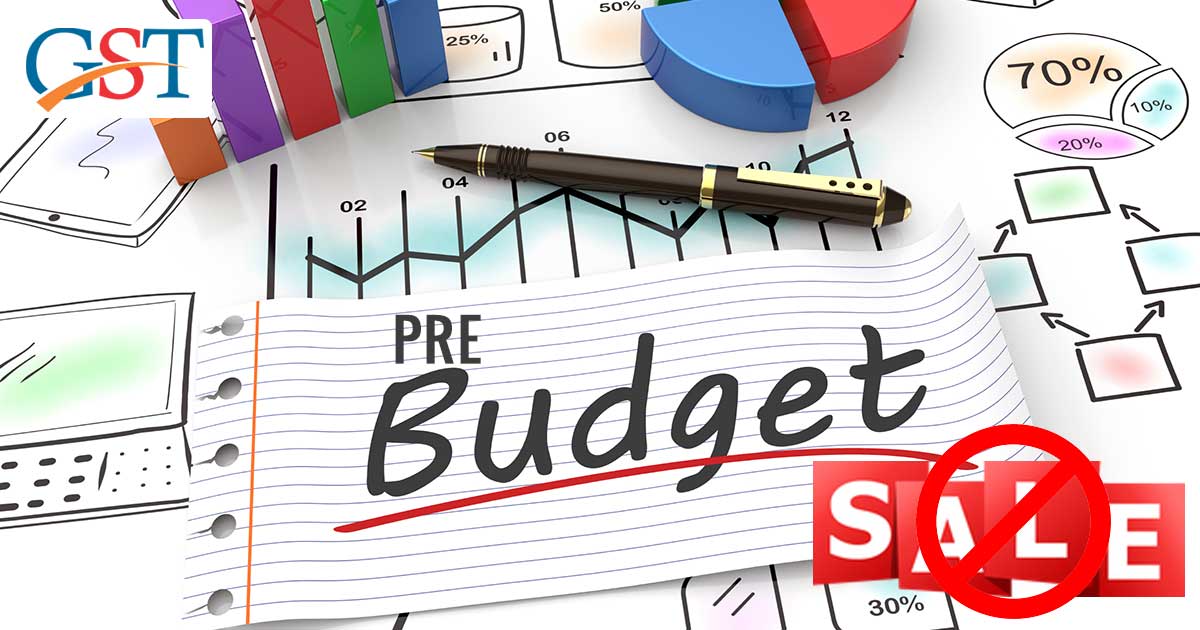The Finance Minister Mr Arun Jaitley, unlike previous years, has not been able to generate the usual pre-budget sales buzz. The main reason for this can be solely attributed to the new GST tax regime introduced on the 1st of July last year. Each year, forced by the possible increase in Tax rates, sales increases across various consumer sectors. However, from online sellers to auto dealers, the pre-budget avalanche of buyers has been missing as normally associated with yesteryears.
Even online sellers have reported a flat pre-budget month compared to last year when online sales surged to new heights driven primarily by panic buying from customers before GST was finally implemented. The GST regime has already addressed most of the TAX issues. This seems to have derailed sales in segments like consumer electronics, consumer durables, etc.
Slow Retail Sales
Online shopping platforms like Amazon, Flipkart coupled with the new GST regime are the main reason for a very low ket consumer durable as well as consumer electronics retail market.The sales have decreased by up to 10-15%.
The GST council decides the Tax rates and the GST rate for consumer durables have been fixed at 28%. This ensures no significant price change post-Budget. Hence, white goods companies have stayed away from burning their pockets on advertising this season. Finance Minister in his budget will reasonably distance himself from making any changes in Tax Rates. The low footfalls have forced the white goods vendors and sellers to maintain a low key. Finance and Market analyst believe that this trend will most probably repeat itself in consecutive years to come. GST is not part of the finance budget. Pre-budget sales in previous years were driven by possible changes in tax-structure. This is not the case this time around.
Read Also: GST Impact on E-commerce Sector in India
No Deals or Discount by Auto Sector
The Auto Sector has had to make course corrections due to the new GST regime. The Manufacturer can no longer enjoy the levies of the VAT regime. Hence, there is a lack of pr-budget discounts on cars and other consumer vehicles. The price of diesel and petrol cars will remain fix post budget. However, Electric Vehicles could be cheaper if, according to expectations, the taxes on batteries and chargers for electric vehicles are reduced
Dull Online Sales for Vendors
According to a spokesperson from AIOVA (All India Online Vendors Association), a forum which has over 3,000 registered sellers, the October sales have done little for sellers. Some sellers reported 15-20% decline in orders. The spokesperson further added, “Most of the offline sales from big brands happened before the Flipkart and Amazon sales. Therefore, overall, average monthly sales for sellers remain flat with no major boost.” Further, adding to the sellers’ vows are the e-tailers who use marketing gimmicks like pre-Republic Day sales are just a ploy for to push their own inventory or private labels and brand merchandise which are purchased outright based on demand forecasting. The top sellers on platforms like Amazon and Flipkart are their own entities like WS Retail and Cloudtail. This indicates a paradigm on behalf of various e-tailers from their marketplace model to sourcing and retail. E-commerce is now just additional sales channel for online sellers and vendors.
Read Also: GST E-Way Bill Trial Noticed Down Issuing 2 Lakh Bills Daily
Amidst all this, Amazon and Flipkart seem to be the only one having a happy Republic and pre-budget month. Flipkart’s Senior Director, Smrithi Ravichandran, in a statement, said: On the back of a stellar sale, Flipkart continues to maintain the lead as the largest e-commerce player in the country.
Amazon reportedly acquired more than 1 million new customers during the Great Indian Sale from 21-24 January. More than half of these new customers belong to tier-2 and tier-3 cities.
